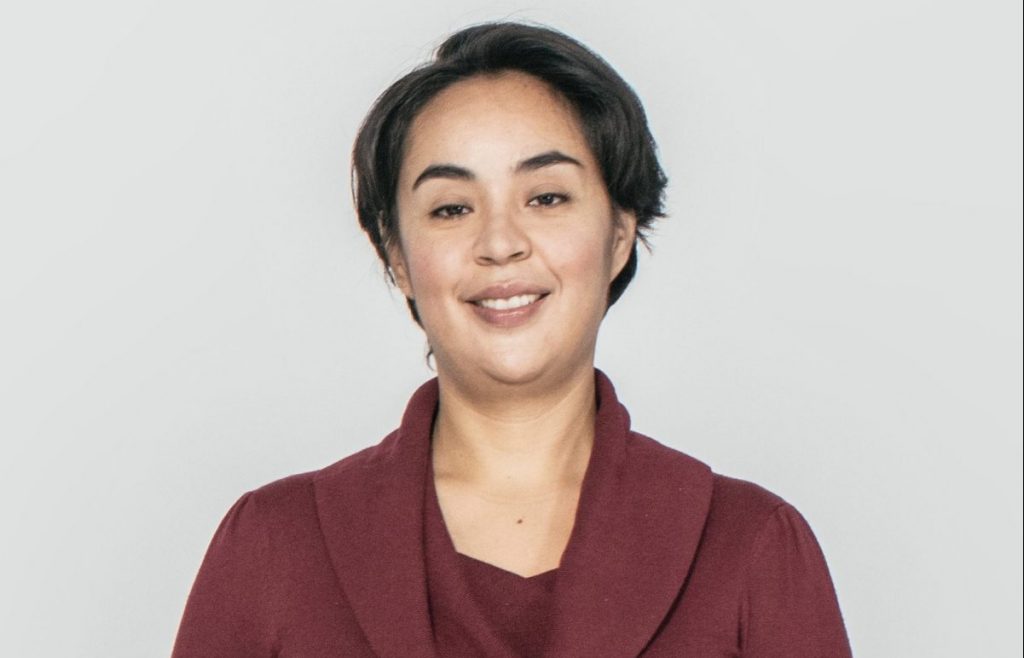We’re taking time over the following weeks to get to know the members of the GSA’s Early Career Scientist Committees. Join us every week to learn more about our 2019 early career scientist advocates.

Adelita D. Mendoza
Communications & Outreach Subcommittee
Postdoc Associate, Washington University
Research Interest
All cells require intracellular zinc to perform functions ranging from signal transduction to cell cycle progression. To perform these functions, cells require tight regulation of zinc levels within the cytoplasm and intracellular compartments. This is accomplished through the actions of zinc-sensing mechanisms that result in the production of zinc transporter proteins. However, when cells can’t properly manage zinc, it can lead to a number of human pathologies, such as anemia, growth retardation, and skin disorders. This is why it’s important to understand the mechanisms that support proper zinc trafficking.
I’m currently studying the reciprocal regulation and localization of two zinc transporters in Caenorhabditis elegans. Each transporter localizes to gut granules in the intestine and occupies unique sub-compartments within it. These gut granules undergo extreme morphological changes to compensate for changes in zinc concentration, leading to a unique distribution of each transporter. I’m working to better understand why this morphological change happens and how it facilitates zinc trafficking. A better understanding of how errors in zinc metabolism develop could provide better treatment options for zinc-related illnesses.
As a PhD-trained scientist, you have many career options. What career paths interest you the most?
My PhD training taught me the value of interdisciplinary work and how research at the interface of different scientific fields can open new doors of scientific discovery. From this experience, I became interested in pursuing a research intensive career. There are many aspects about being a researcher that I find fulfilling, including forming and testing hypotheses, collaborating with colleagues, and communicating scientific findings. It’s so satisfying to see how a set of ideas can manifest into an entire research study!
Along with the skills I acquired from my graduate studies, I also became involved in science advocacy in order to help promote the careers of people of color. These activities enhanced my communication skills and taught me how to mobilize groups of people for a common goal. I also learned the value of being a member of a close-knit community. I believe all these skills would be a great fit for a career with a non-profit organization that focuses its work around the awareness and elimination of a particular disease or one that focuses its work around a particular social cause.
In addition to your research, how else do you want to advance the scientific enterprise?
The scientific enterprise benefits from a diverse workforce. In order to help promote diversity in science, I plan to continue to focus my advocacy work into increasing the visibility and recruitment of faculty of color. As a graduate student at Northwestern University, I worked toward enhancing graduate student training by providing career development workshops and seminars.
Through working with students across Chicago, we realized that institutions need to do more to increase the visibility of faculty of color. Across multiple institutions, few faculty of color were invited as seminar speakers and new faculty appointments. Addressing this issue will lead to better representation, improve mentoring for students of color, and strengthen research endeavours.
As a leader within the Genetics Society of America, what do you hope to accomplish?
As a leader in the GSA, I look forward to contributing to science articles with my fellow committee members and generating original articles pertaining to emerging research and career-related topics. GSA is a large organization, and our articles will help GSA readers stay current on emerging research and career-related issues from a new viewpoint. I also want to make science topics accessible to non-scientists via written articles and social media.
I became passionate about biology when I was very young, and I hope to share this passion by communicating in formats that are easily accessible to many people. I believe this will help improve science literacy for non-scientists, while expanding the reach of the GSA beyond the scientific community.
Previous Leadership Experience:
- President and Co-founder – Society of the Advancement of Chicanos/Hispanics and Native Americans in Science (SACNAS) Student Chapter, Northwestern University
- Undergraduate Mentor – Northwestern University













